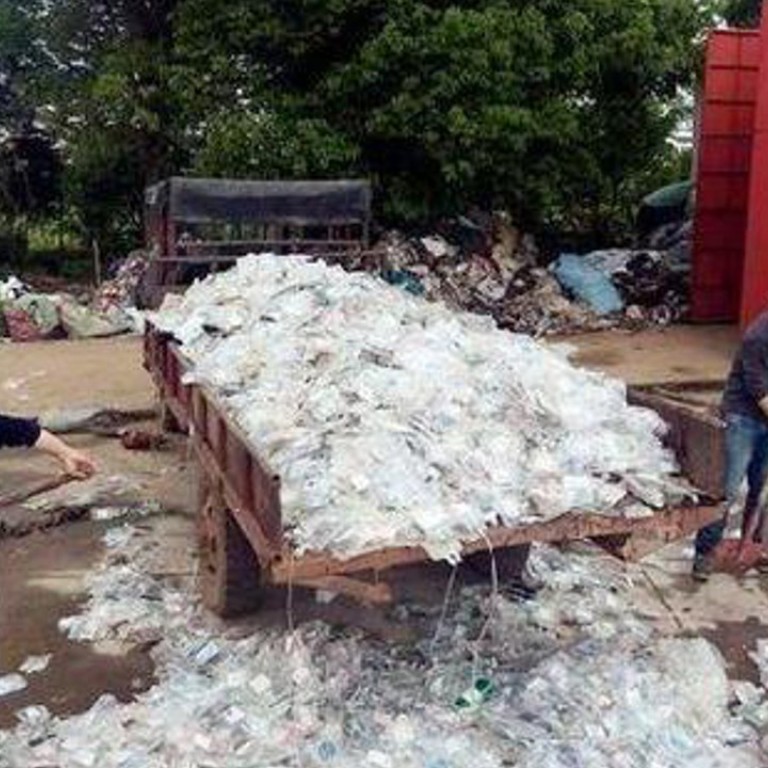
Grisly find exposes China’s dirty trade in used blood bags and syringes
Discovery of mountains of used medical supplies being ‘recycled’ at a Hunan workshop reveals a web of dealers across the country, report says
More than 140 tonnes of used plastic medical supplies, including syringes and blood bags, was illegally sold off through an underground network of recyclers on the mainland, state media reported on the weekend.
The sale of the waste came to light with the jailing of a dozen people convicted on environmental pollution charges in Hunan province last week.
Police officers handling the case said they were concerned that more of the dangerous waste might have been fed back into the manufacturing chain and reprocessed into plastic products for the food, medical and building renovation industries, Outlook magazine reported.
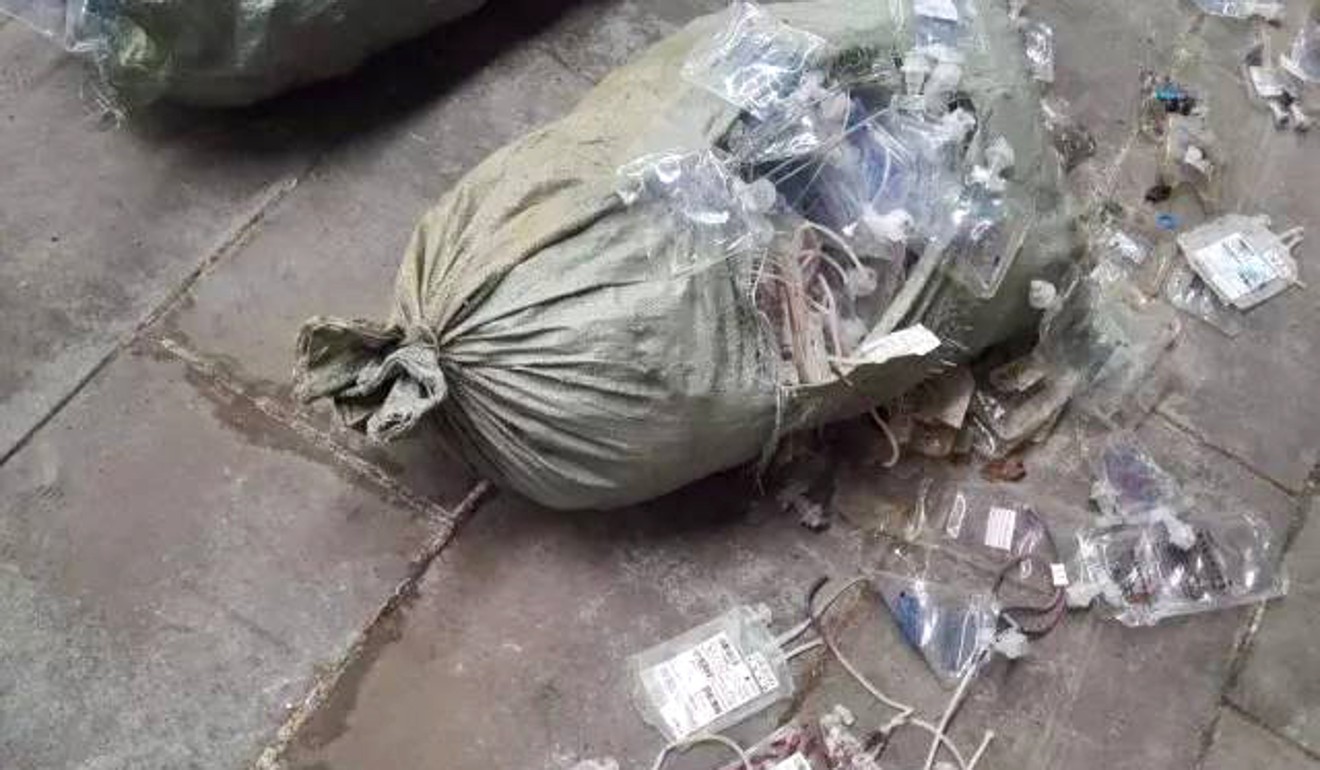
Hunan police spent six months investigating the illegal activity, detaining dozens of suspects in a web of dealers and suppliers – including property management firms – that spread from Hunan, to Hubei, Guangdong, Hebei and Jiangsu. More suspects were still on the wanted list.
Chinese official’s wife jailed for taking 1.5 million yuan of bribes in new vaccine scandal
Acting on a tip-off, officials from the Miluo Environmental Protection Bureau in Hunan discovered several men “recycling” about 50 tonnes of used medical supplies in a backyard workshop in Gupei township in April last year, the magazine published by state-run Xinhua reported.
“The scene was dreadful to the eye and disturbing to the mind,” bureau official Xu Shuli was quoted as saying.
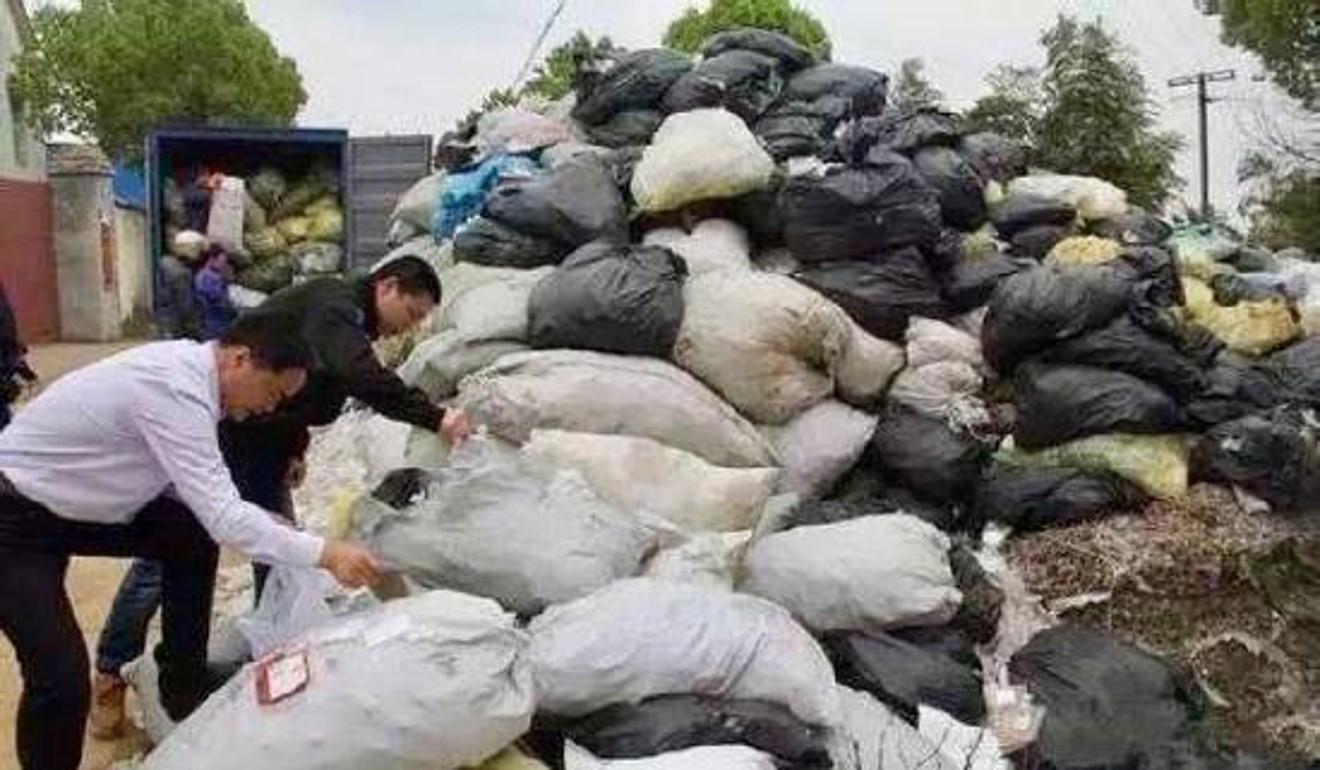
The workshop’s yard was covered in piles of used medical supplies, with liquid residue from IV bags leaking onto the ground and syringes caked in dried blood. There was also a stench in the air, the report said.
Chinese police bust plant recycling medical waste for use in plastic toys and tableware
Instead of destroying the waste or having it professionally processed, the men cleaned the used materials with water and then discharged the effluent directly into a gutter.
“These workers did not even wear any masks,” Xu said.
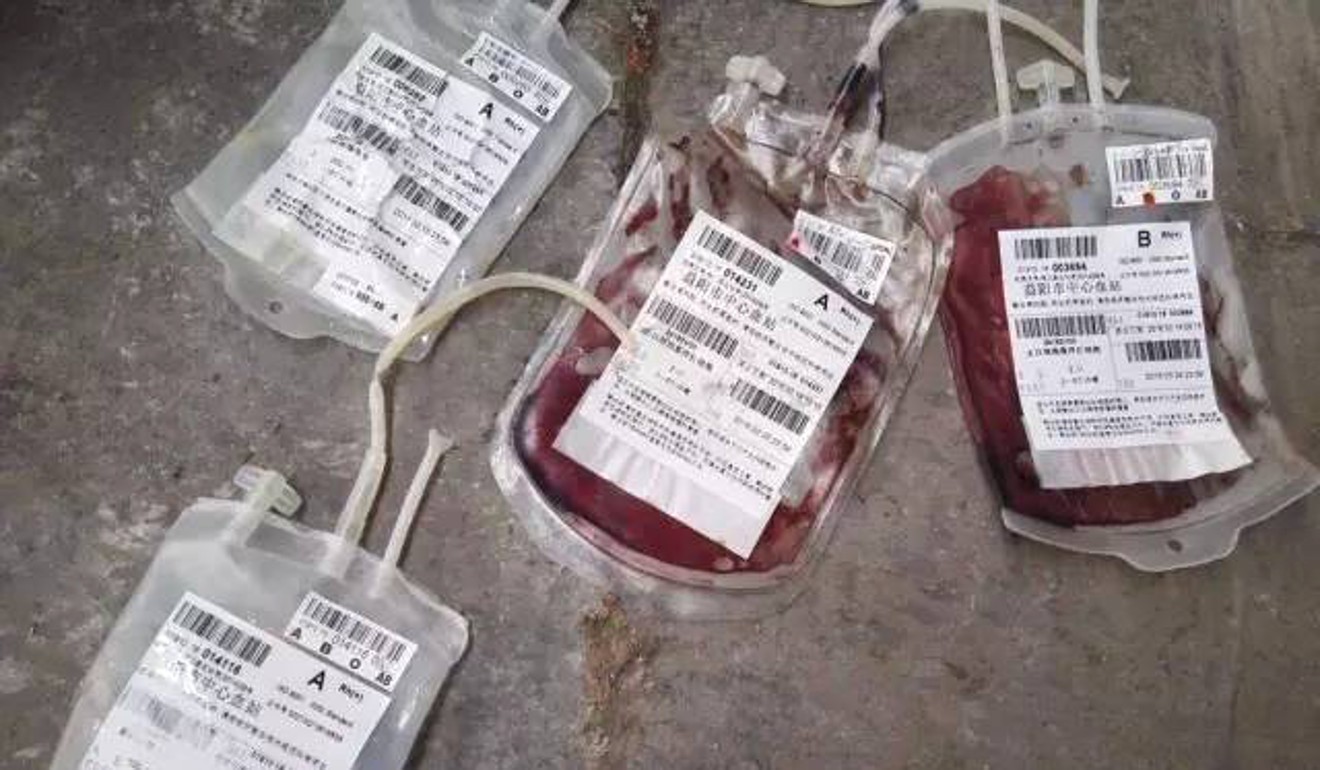
The men – several workers and a dealer – said they bought the waste from a rubbish dump for 2,000 yuan (HK$2,300) a tonne, manually sorted the waste into categories, washed it, and chopped and smashed it into pieces. The material was then sold to another dealer for 5,000 yuan a tonne, they were quoted as saying.
Investigators said one dealer in Langfang, Hebei province, traded in tonnes of the waste, which he processed into untraceable materials. The plastic was sold on for use in manufacturing pipes, and supplies for the food and medical industries, the report said.
Among the evidence collected in Miluo were IV drip bags and blood bags from hospitals in Xiangtan, Zhuzhou and Hengyang in Hunan province, and Xiangyang in Hubei province.
Most of the waste was from public medical facilities, including top-tier ones. Investigators said hospital property management companies and cleaning firms and a recycling company, were implicated in the case.
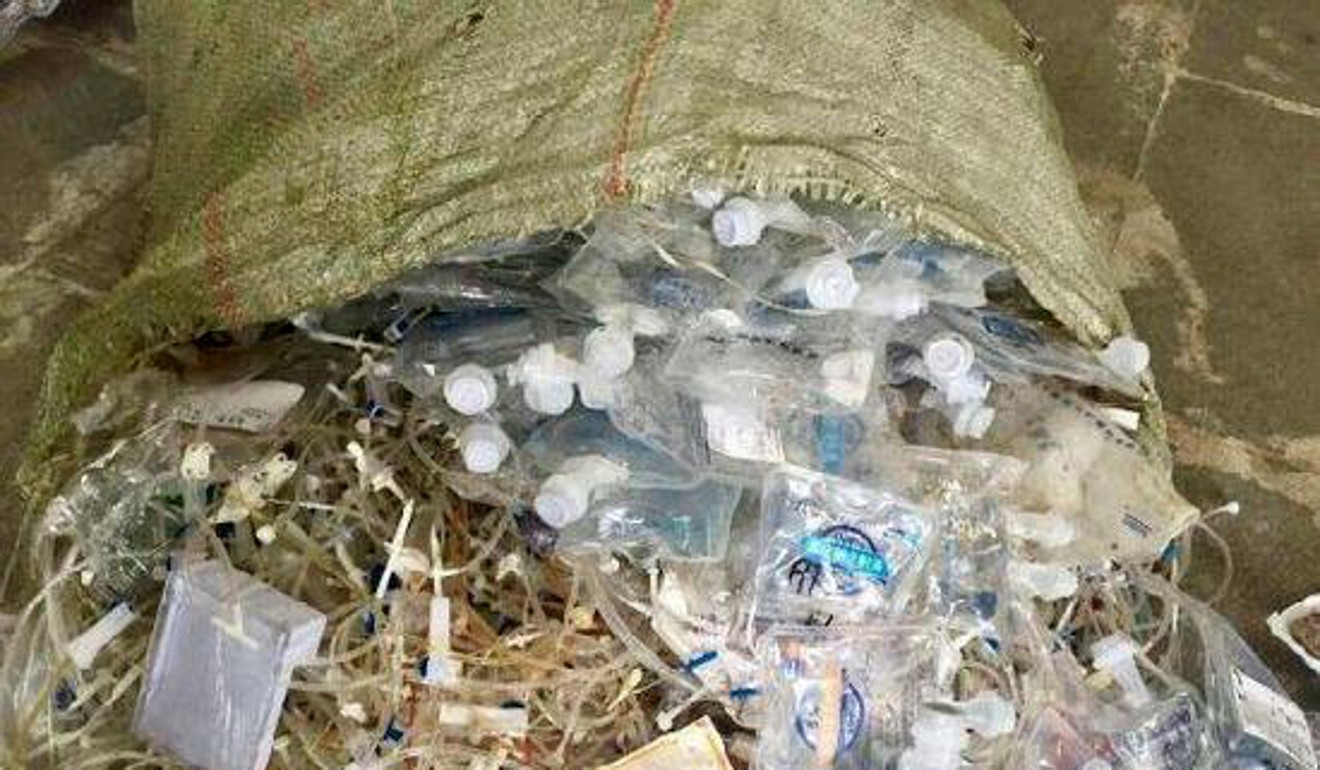
A police officer in Miluo said one suspect bought used plastic medical devices such as syringes from a property management company for a big hospital.
Some hospitals turned a blind eye to property management staff selling the used supplies, the report said.
“County-level hospitals do not pay support staff and cleaners enough, so they let them sell the waste. They would rather have them sell the waste than pay professional recycling companies to destroy the materials,” one hospital worker was quoted as saying.

